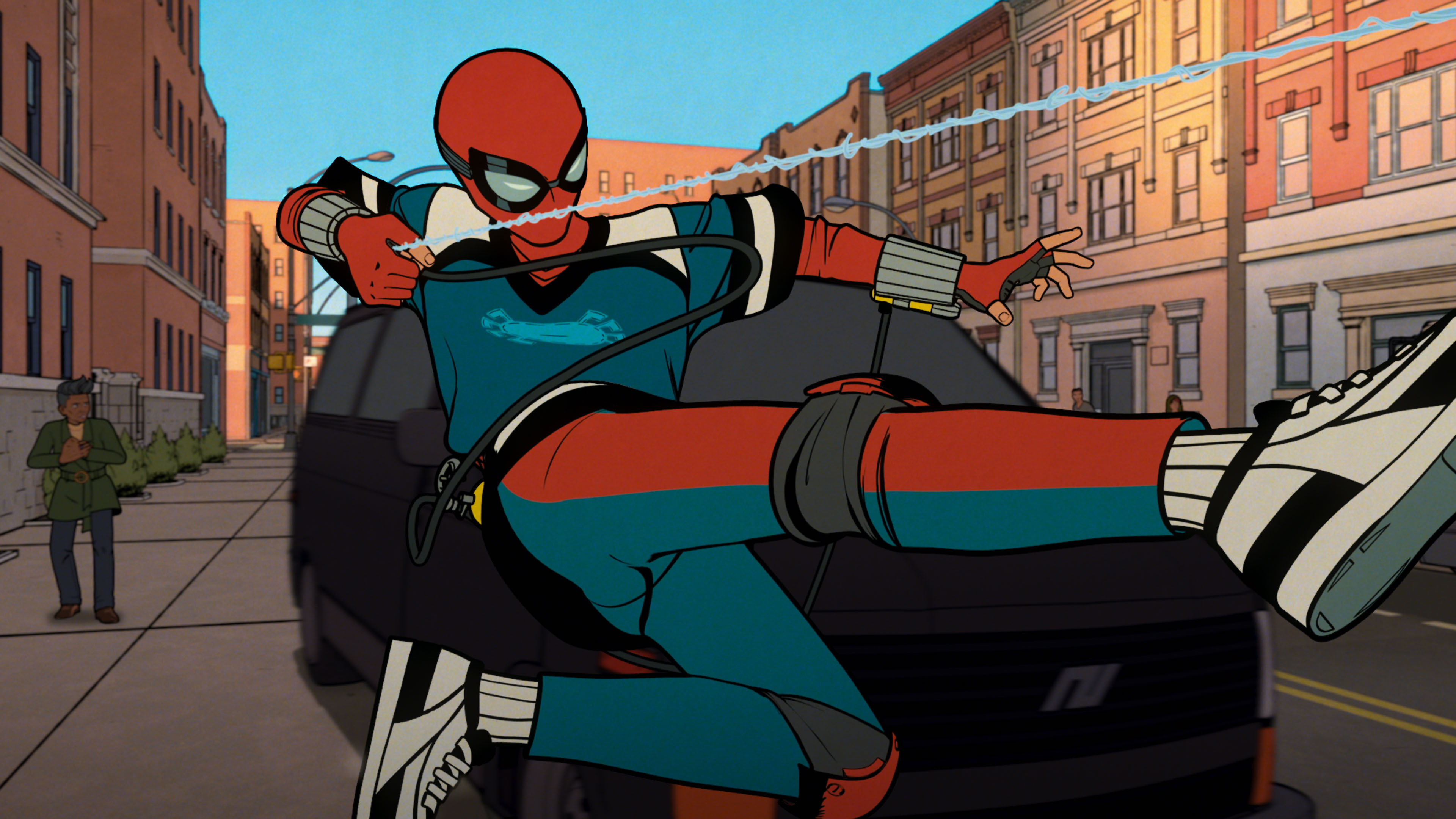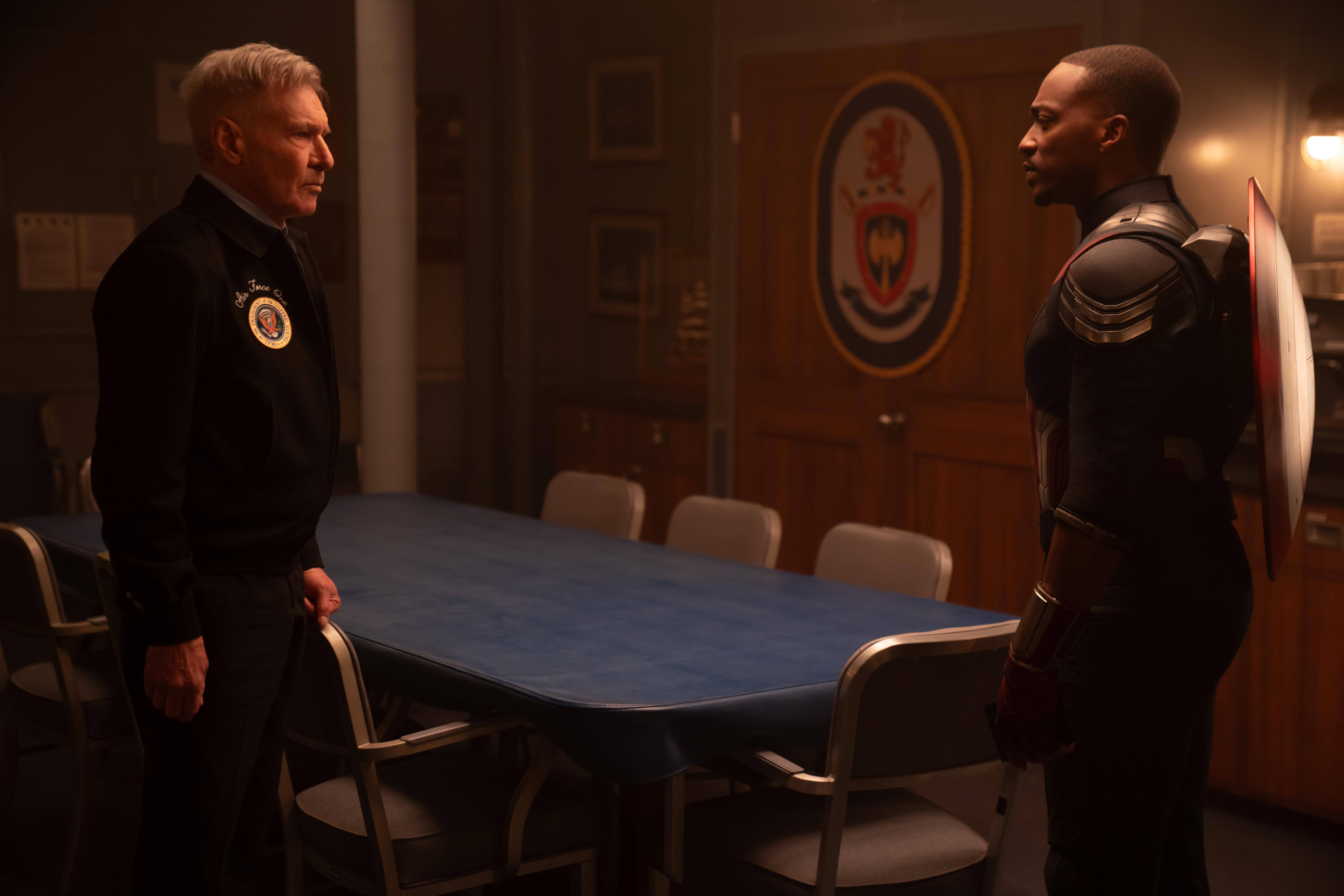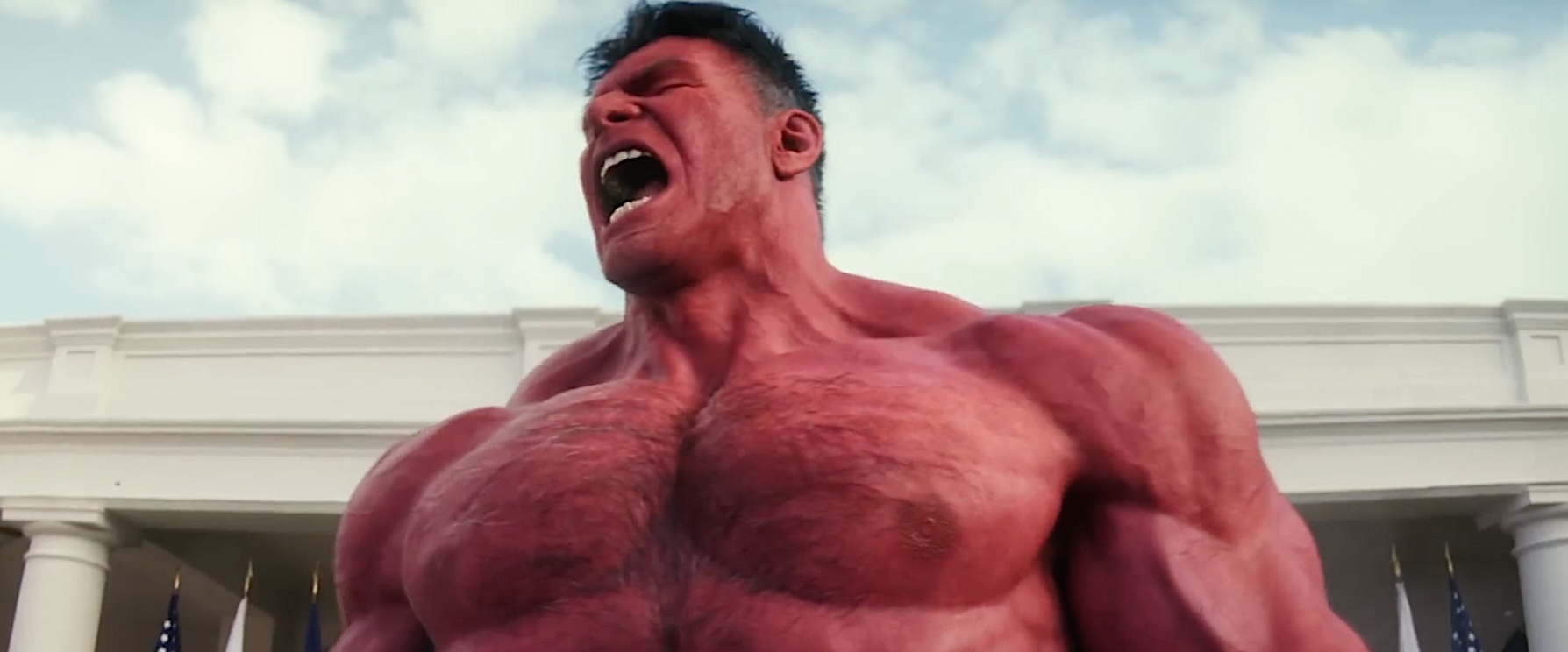The comics medium is a beautiful and interconnected ecosystem, and we do our best to show that in Polygon’s best comics of the year. From self-published works and foreign imports to Marvel and DC’s blockbuster series, if one thing is clear in 2023, comics culture inspires all culture. But who cares if these are the movies, TV shows, and games of five years from now?
Here in 2023, they’re incredible books.
Comics were considered eligible if they were graphic novels published for the first time in 2023 or series that were collected for the first time, or published their final collection, in 2023. Everything on this list is available in paperback or collected form for your eager hands — no worries for trade-waiters.
Darlin’ and Her Other Names (Part 1: Marta)
:no_upscale()/cdn.vox-cdn.com/uploads/chorus_asset/file/24814391/DARLIN_000_LETTERED.jpg)
by Olivia Stephens
The first installment of Olivia Stephens’ self-published werewolf-Western-horror-romance comic is one of the most striking things I’ve read all year. Brought to life in stark black and white, Stephens crafts a haunting yet hopeful tale of two strangers who meet in the wake of violence and come together to gain the vengeance they both so desperately desire.
This is the kind of comic that, despite being 88 pages long, will immediately have you hungry for more. It’s soulful, moving, beautifully rendered, and uniquely atmospheric. Stephens has already showcased her talent with the lovely graphic novel Artie and the Wolf Moon, but while that was a charming book for younger readers, Darlin’ is unabashedly for adults, with emotional heft, deep thematic resonance, and brutal violence that will leave you thinking long after you finish reading. —Rosie Knight
Shubeik Lubeik
:no_upscale()/cdn.vox-cdn.com/uploads/chorus_asset/file/24814395/60465407.jpg)
by Deena Mohamed
Whenever Egypt comes up in Western art, it’s usually flattened and caricatured under the Western gaze. But what happens when you reverse the perspective? Deena Mohamed’s brilliant saga — a work by an Egyptian creator originally serialized for an Egyptian audience in Arabic — does just that. Her seminal comic is finally available in English, with Mohamed herself translating it, and with pages that read right-to-left just like any familiar manga, reflecting its origin.
Set in a modern day Cairo, the book pulls the reader into an alternate history wherein humanity can wish their dreams into reality — for a price. Following multiple characters from varied class backgrounds, Mohamed explores how a world shaped by Western colonialism and capitalist impulses even systematizes impossible powers like wishes and dreams — and what that does to the Egyptian people living in such a society. Deploying slick back-matter, infographic pages, charts, and transitions between color and black and white, this work of bold science fiction/fantasy reads like no other comic out this year, or any year.
There’s talking donkeys, deadly dragons, clever world-building, and best of all: heartrending characters that stick with you. —Ritesh Babu
Where I’m Coming From
:no_upscale()/cdn.vox-cdn.com/uploads/chorus_asset/file/25141166/91FO9Li_uOL._SL1500_.jpg)
by Barbara Brandon-Croft
In the last few years Drawn & Quarterly has cemented itself as one of my favorite publishers, thanks to its commitment to collecting hard-to-find work by brilliant women in beautiful and thoughtful editions. Where I’m Coming From showcases that perfectly, collecting the beautiful, funny, heartfelt, and achingly cool strips by Barbara Brandon-Croft, the first Black woman to be a nationally syndicated newspaper cartoonist.
Croft’s work is so enjoyable that this is the kind of book you’ll reread again and again. It’ll also shock you that her work hasn’t been widely collected before, as this is some of the best strip cartooning of the modern age — it feels just as fresh today as it did when it was first published. As both a fantastic celebration of Black womanhood and cartooning, and a gorgeous archival piece of publishing, this is easily one of my favorite comics of 2023. And luckily for us, Croft still publishes new and brilliant comics online. —RK
Do a Powerbomb!
:no_upscale()/cdn.vox-cdn.com/uploads/chorus_asset/file/24814404/Do_A_Powerbomb_Trade.jpg)
by Daniel Warren Johnson
The story of Do a Powerbomb is that Daniel Warren Johnson got into professional wrestling for the first time during the COVID-19 pandemic, and this is his love letter to the form.
The story within Do a Powerbomb is that a necromancer offers a spot in his supernatural wrestling tournament to one young wrestler from our world, where wrestling is performance. If she wins, he’ll bring her late mother back to life, but to do that, she’ll have to tag team with the masked wrestler who accidentally killed her during a fateful match. Twist! That masked wrestler is her dad. Twist! They have to fight God! Like, the Judeo-Christian God!
The joy of Do a Powerbomb is that there’s no inch of it that’s ashamed or sheepish: It’s all sincerity, all camp, all heart, and all spectacle. The glory of it is how Johnson takes the eye of a Renaissance painter to its action. He can blow a split second out on the page so that the tension and beauty of it hangs forever, and mostly he does. —Susana Polo
Blood of the Virgin
:no_upscale()/cdn.vox-cdn.com/uploads/chorus_asset/file/24814405/Blood_of_the_Virgin_Cover_Art_scaled.jpg)
by Sammy Harkham
Seymour, if we’re being honest, is a bit of a schlub. The protagonist of cartoonist Sammy Harkham’s Blood of the Virgin lives in 1970s Los Angeles, where he does solitary film editing on the worst sort of grindhouse film. He dreams of being a screenwriter, but then it’s seedy: His magnum opus is called “Blood of the Virgin,” and its artistically bereft production unfolds over the course of Harkham’s comic. Seymour doesn’t have nearly as much to offer as he wishes he did, and he’s running out of ways to disguise it from his parasitic boss, his wife Ida, and even himself.
All of this risks making Blood of the Virgin sound like the kind of navel-gazing comic about narcissistic men reliably found on highbrow reading lists, but that doesn’t come close to what Harkham is doing here. Because alongside all that, Seymour is an Iraqi Jewish immigrant and the child of Holocaust victims, attempting to situate himself inside a culture with which he can never entirely relate.
So like Boogie Nights (a film with which this comic shares a general similarity), Harkham’s work uses a small lens to illuminate sprawling themes: the history of Iraqi Jews; survivor’s guilt; Hollywood exploitation; the burning desire that all of us have to belong somewhere. Blood of the Virgin might be a masterpiece. —Zach Rabiroff
20th Century Men
:no_upscale()/cdn.vox-cdn.com/uploads/chorus_asset/file/25141206/20th_century_men_vol_1_tpb_ce4ed2599d.jpg)
by Deniz Camp, Stipan Morian, Aditya Bidikar
The clearest critiques of the United States flow easily from the pens of those who have lived outside of it, where the cruelty of the nation’s foreign policy exists in stark opposition to the fabulist posturing of its leaders. 20th Century Men does this with superheroes, spinning an alternate-history tale full of Avengers-style super-soldiers, genetic experiments, and patriotic figureheads in a battle for the soul of Afghanistan. Deniz Camp, Stipan Morian, and Aditya Bidikar have crafted a powerful, searing fable set in a version of the Soviet-Afghan War of the ’80s, where a Russian soldier with metal armor contends with a superhuman American president and his crazed cyborg weapon — and a determined Afghan woman struggles to build paradise for her people amid the plunder.
With the crushing juxtaposition of devastation and hope illuminated by the glow of sunsets and gunfire, Moran brings visual poetry to Camp’s fiery prose for a story that seeks some kind of absolution for the superhero metaphor, and struggles to find it. Maybe it’s just another American crime, a reminder that this country was not born from one original sin, but many. —Joshua Rivera
Wonder Woman Historia: The Amazons
:no_upscale()/cdn.vox-cdn.com/uploads/chorus_asset/file/24814412/456178AD_A0B0_4D87_A09F_4F10C3169DF7.jpeg)
by Kelly Sue DeConnick, Phil Jimenez, Gene Ha, Nicola Scott, et al.
Wonder Woman Historia was among the very first titles DC announced when it revealed the scope and theme of its new Black Label imprint — a place for the biggest names DC could attract to make canon-optional stories at a high production value. Five years later, the first collected edition of Wonder Woman Historia: The Amazons is simply the the most stunning work of illustration to come out of the Big Two comics houses in years.
Phil Jimenez filled every inch of the 62-page first issue with with hugely detailed renderings of heavily researched character designs of the entire Greek pantheon and 30 original characters. It was an act that seemed impossible to follow, until Gene Ha returned with an issue full of hidden goddesses. Nicola Scott rounded out the trilogy with some of the best layout and character work in comics today.
And I haven’t even talked about Kelly Sue DeConnick’s expert prose, or her heart-wrenching story of Queen Hippolyta of the Amazons, as the Amazons tell it themselves. A primal scream in exquisitely worked gold. —SP
Damn Them All
:no_upscale()/cdn.vox-cdn.com/uploads/chorus_asset/file/25141243/816kk6w8j8L._SL1500_.jpg)
by Simon Spurrier and Charlie Adlard
Simon Spurrier, Matías Bergara, and Aaron Campbell’s 2020 run on DC’s Hellblazer was one for the books: Urgent, clever, relevant, and very, very angry. It also ended too soon, canceled after 12 issues with so much more to say. Spurrier responded with Damn Them All, a creator-owned spiritual successor to his Hellblazer run that doubles as a fuck-you to the fates. Joined this time by The Walking Dead artist Charlie Adlard, Damn Them All follows occultist Ellie “Bloody El” Hawthorn, the niece of a thinly veiled John Constantine stand-in named Alfie, as she must damn 72 freed demons back to hell itself.
Calling Damn Them All nu-Hellblazer does the series an injustice — it has its own concerns. Where Hellblazer was a scathing Gothic nightmare about post-Brexit England, Damn Them All focuses its rage on the wealthy technocrats of the world. Demons become a metaphor for the power to reshape the world simply because they have the boredom and the means. Ellie Hawthorne isn’t a hero, either, but a junkie who knows someone is trying to screw her, and has the know-how to try and screw them first. Through Charlie Adlard’s inky pen and jagged lines, Damn Them All is a story about being pissed in all kinds of ways, and having no problem with finding a few more. —JR
Roaming
:no_upscale()/cdn.vox-cdn.com/uploads/chorus_asset/file/25141250/9150n8JtROL._SL1500_.jpg)
by Jillian Tamaki and Mariko Tamaki
It’s dangerously easy to take a book like Roaming for granted. The third collaboration between Jillian and Mariko Tamaki, the story of three young travelers going to New York City in pursuit of their individual aspirations is a feat of well-executed understatement. The dialogue is quick and clever, but never once draws attention to its own cleverness. The social satire on race and gender is sometimes biting but never belabored. And even the art is an accomplishment in effective minimalism, using deceptively simple linework and a two-tone palette of sepia and gray to somehow suggest the bewildering exhilaration of a small dreamers in a big city.
It all works because, at this point in their careers, the Tamakis are as seasoned as pros can get: They can reduce their story and their cartooning to the bare essentials, but lose none of what makes it funny, engaging, and effortlessly readable. Roaming isn’t anyone’s attempt at a magnum opus, or a boundary-pushing experiment in comics form. It’s a graphic novel about imperfect characters, perfectly told, and we’re lucky to have it. —ZR
Monica
:no_upscale()/cdn.vox-cdn.com/uploads/chorus_asset/file/25141254/monica_custom_bc531970fb7a2958aa093503a06cbadc38e0138a_s1100_c50.jpg)
by Daniel Clowes
Monica, the latest graphic novel from comics’ young-iconoclast-turned-elder-statesman Dan Clowes, is the artist’s most ambitious book to date, and very likely his best. On its most literal level, it’s a story told in historical vignettes about the life of the titular main character as she tries to piece together the lifelong mystery of her family history and the identity of her unknown father. That narrative is conveyed in a mosaic patchwork of different episodes that capture the tone and form of different eras of American history and comic book genres, all leading up to a (literally) apocalyptic climax that’s both horrifyingly inevitable and exhaustingly purposeless at the same time.
And if all of this sounds disconnected, the disconnection is the point: Monica is a book about the bleak march of American history, but it’s also a book about how all of us grope, with imperfect success, to find some kind of meaning in the bewildering shapelessness of our lives. It’s the work of an artist who’s getting older and knows it, and is becoming vastly better because of it. —ZR








